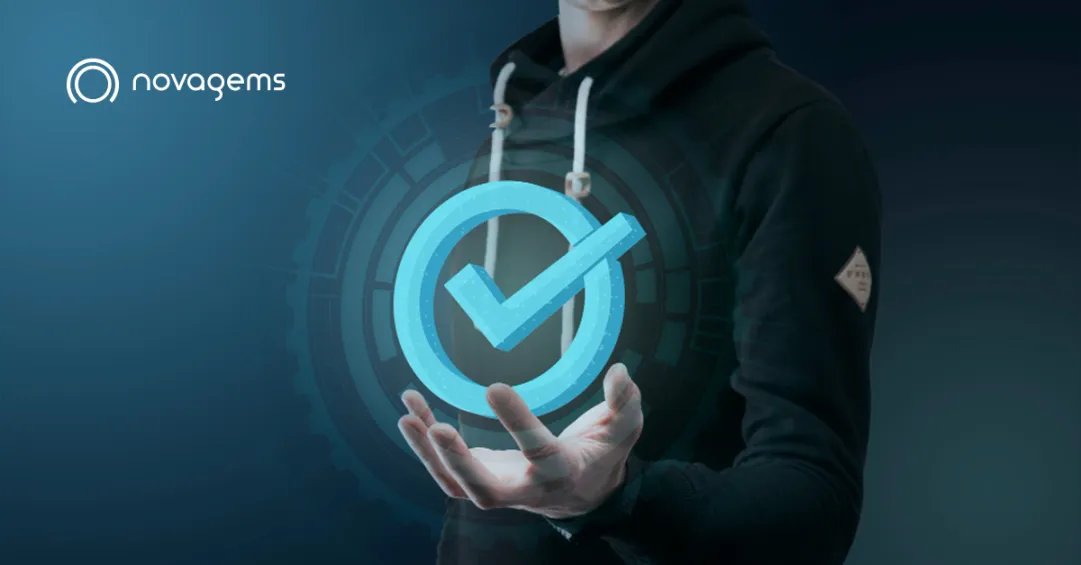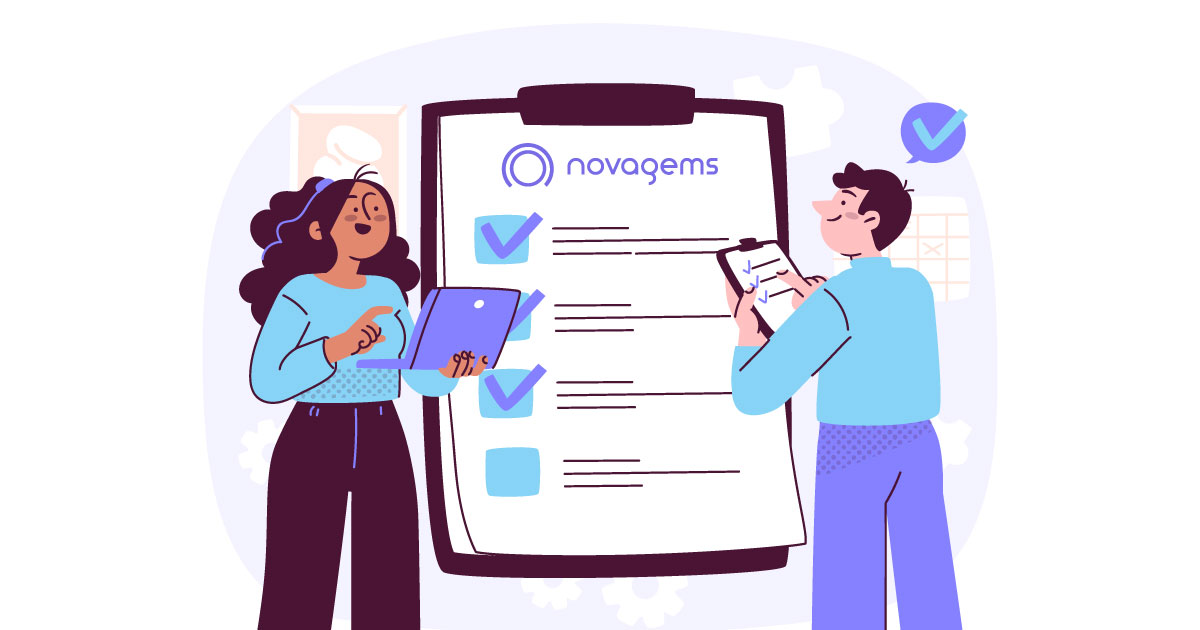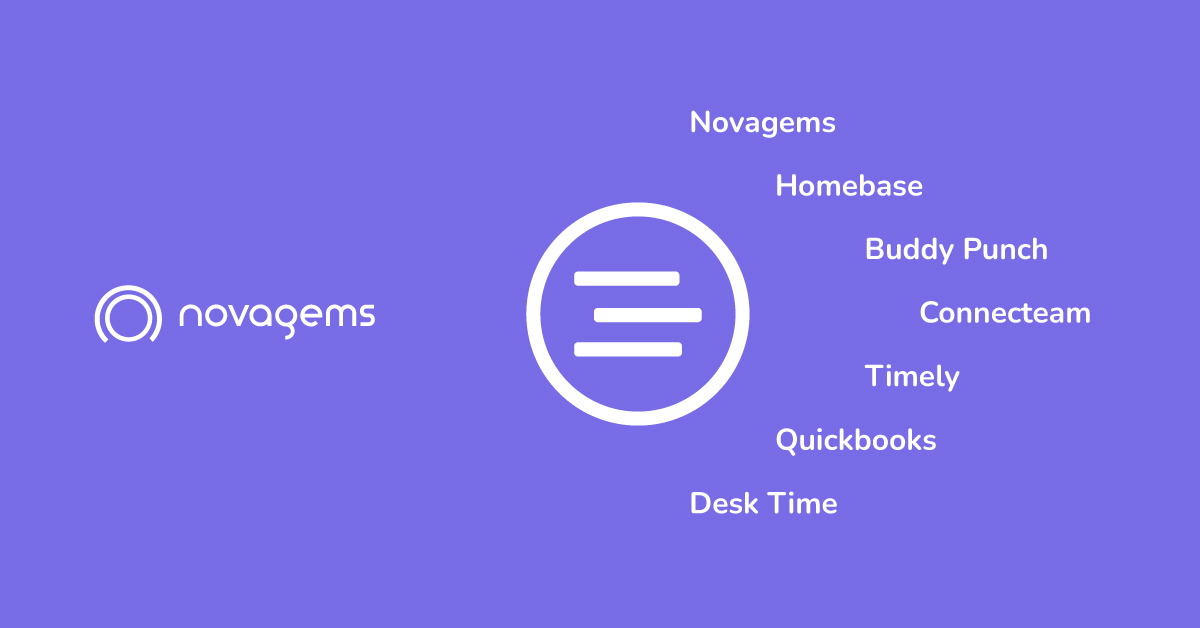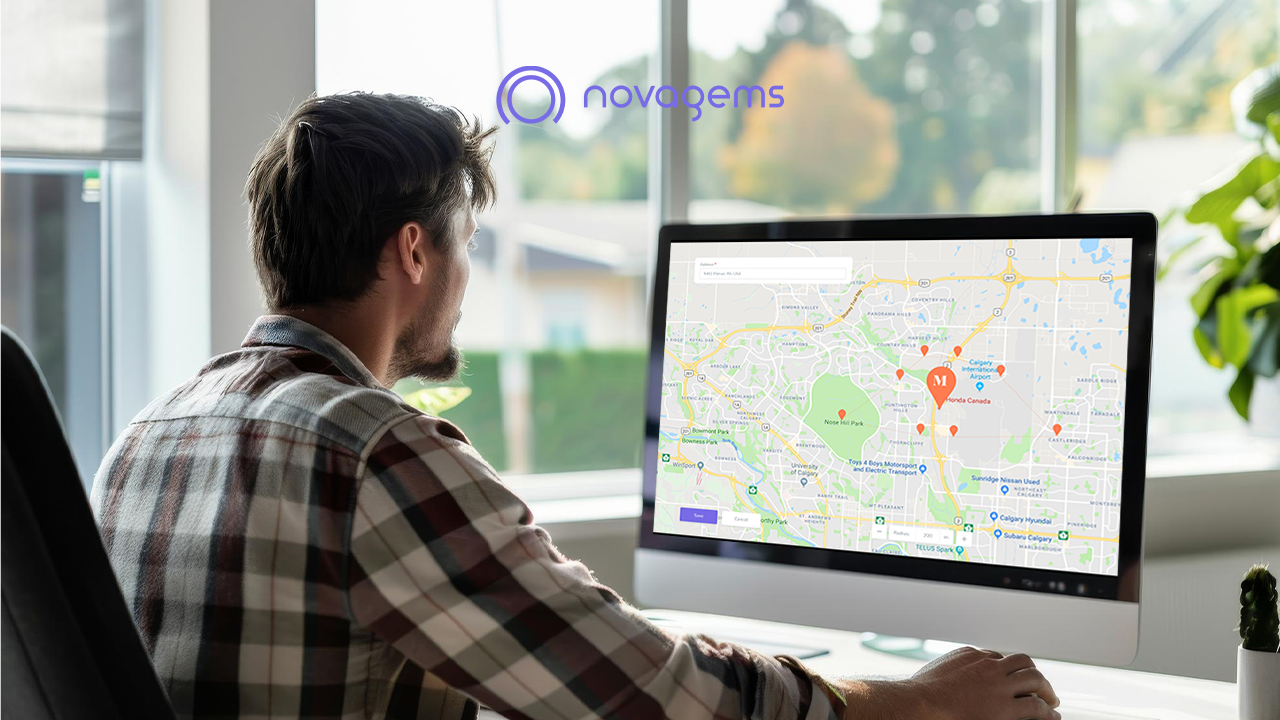What are Essential KPIs for Guards
Tue, Sep 10, 2024
Read in 11 minutes

Key Takeaways
- KPIs measure security guard performance through metrics like response time, patrol compliance, and customer satisfaction.
- Top KPIs include incident response time, patrol compliance, attendance, and customer satisfaction.
- Track KPIs using tools like GPS tracking, incident software, and real-time monitoring, along with regular training.
- KPIs improve efficiency, resource allocation, client satisfaction, and overall security operations.
In any security operation, measuring performance is crucial for improving efficiency, ensuring safety, and maintaining high standards of service. For security managers, one of the most powerful tools in managing their teams is the use of KPIs (Key Performance Indicators). These measurable metrics offer real-time insights into the performance of security guards and can guide improvements in key areas such as response times, coverage, and client satisfaction.
Tracking the right KPIs not only helps improve security operations but also boosts accountability, enhances client satisfaction, and provides measurable data for better decision-making.
Key Performance Indicators (KPIs) are crucial in managing a security team. They help track how well the guards are performing, identify areas for improvement, and ensure a high level of safety for clients. When you measure KPIs, you can ensure that guards are following proper procedures, responding quickly to incidents, and doing their jobs effectively. Any smart KPIs for your security operations are meant to increase the performance of your security guards.
KPIs are like report cards for your security team. They give clear information about how the guards are doing, how fast they respond to emergencies, and how accurate their reports are. This data allows managers to make smart decisions and improve the team’s performance over time.
Why KPIs Matter for Security Guards
KPIs serve as a performance measurement tool that evaluates various aspects of a security guard’s duties, including efficiency, productivity, and quality of service. By setting clear KPIs, you can monitor progress, detect weaknesses, and identify areas for improvement.
Here are a few key reasons why KPIs are vital for security guard teams:
- Objective Measurement: KPIs offer measurable data that removes ambiguity and subjectivity from evaluations. This ensures that security guard performance is assessed based on clear, consistent criteria.
- Enhances Accountability: When performance is tracked, security personnel are held accountable for their work, encouraging better discipline and service.
- Improves Operational Efficiency: By identifying areas that need attention, KPIs help optimize workflows and reduce inefficiencies.
- Improves Client Satisfaction: By monitoring KPIs such as response time and reporting accuracy, you can ensure better service and improved client experiences.
Without well-defined KPIs, security managers would lack the insights needed to improve performance or ensure the security team meets company and client expectations.
Key KPIs for Security Guards
-
Incident Response Time
Incident response time is one of the most critical KPIs for security guards. It tracks how quickly security personnel respond to incidents or emergencies. Quick and effective response time is essential in preventing escalation, minimizing damage, and ensuring safety. Incident response time measures how quickly guards respond to emergencies or incidents. Whether it’s a fire alarm, a break-in, or another emergency, the faster a guard responds, the better the outcome. It is one of the smart kpi’s for your security operations as it helps you see how efficient your security guard is.
A study by ASIS International found that rapid response times in security incidents reduce overall risks by 20-25% and help lower the severity of security breaches.
Why It Matters:
- A quick response can reduce risks, enhance safety, and lower liability.
- Clients expect fast reactions to security incidents, and delays in response time can lead to more significant security breaches or even legal issues.
How to Track:
- Use incident reporting software that allows security personnel to log events immediately and track how long it takes for them to respond.
- Mobile tracking apps or GPS systems can be used to monitor how quickly a security guard arrives at a location after an incident is reported.
- Monitor response times using security software that logs incidents and tracks how long it takes for guards to react.
- Set performance goals for response times, such as responding within 5 minutes of an alarm being triggered.
Improvement Tips:
- Regularly analyze response time data to identify delays and implement corrective measures.
- Train guards on efficient incident-handling procedures, including emergency protocols.
-
Patrol Compliance
Patrol compliance measures how thoroughly security guards follow their assigned patrol routes. This KPI is essential for ensuring that all areas are monitored and reducing the likelihood of security breaches. Patrol compliance measures whether security guards are completing their assigned patrols. This includes checking that all areas are covered and that guards are scanning checkpoints or performing tasks during their rounds.
How to Ensure Patrol Compliance:
- Use guard tour systems to track whether guards are completing their patrols.
- Set up GPS or NFC checkpoints that guards must scan during their rounds.
- Monitor the data in real-time to ensure patrols are completed as scheduled
- Use GPS-enabled devices to track the patrol routes taken by security guards.
- Implement geofencing technology to ensure guards follow their assigned routes and enter designated areas.
Why It Matters:
- Comprehensive Coverage: Regular patrols ensure that no area is left unattended, and vulnerabilities are reduced.
- Deterrence: Visible patrols act as a deterrent to potential criminals or unauthorized individuals.
Improvement Tips:
- Review patrol data to identify areas where compliance is low.
- Encourage spot checks to ensure guards are staying on track.
3. Attendance and Punctuality
Attendance and punctuality are essential KPIs in the security industry. High rates of absenteeism or tardiness can lead to shifts being uncovered, which compromises security and impacts operational efficiency. Security guards must be present and on time for their shifts to ensure the site is protected at all times. If a guard doesn’t show up or is late, it creates a security gap that can put the whole operation at risk.
How to Measure Attendance and Punctuality:
- Use scheduling software to track when guards clock in and clock out.
- Set alerts for any missed shifts or late arrivals.
- Review attendance reports regularly to spot patterns of absenteeism or lateness.
- Implement an automated time tracking system that logs when guards arrive and leave their shifts.
- Use attendance software that sends alerts for late arrivals or absences.
Why It’s Important:
- Coverage: Ensures no shifts are left uncovered.
- Reliability: Helps identify guards who are dependable and those who may need extra motivation or guidance.
Why It Matters:
- Operational Continuity: Missing guards or late arrivals can leave areas vulnerable, reducing the effectiveness of the security team.
- Team Morale: High attendance and punctuality rates contribute to a more reliable and dependable team.
Improvement Tips:
- Implement an attendance policy with clear guidelines and consequences for tardiness.
- Offer incentives for punctuality to encourage better attendance rates.
4. Customer Satisfaction
Customer satisfaction is a somewhat indirect but incredibly important KPI. This metric tracks how well your security guards are meeting client needs, such as professionalism, reliability, and effectiveness in their duties. Customer satisfaction is a KPI that reflects how happy clients are with the security services. This can be measured through feedback surveys, client check-ins, or regular reviews.
Why It Matters:
- Client Retention: Satisfied clients are more likely to renew contracts, leading to long-term business growth.
- Reputation: Positive customer feedback can significantly enhance the reputation of your security services.
How to Track:
- Use surveys or feedback forms to gather customer opinions after each security service.
- Monitor online reviews and social media mentions for real-time feedback on your guards’ performance.
- Meet with clients to discuss any concerns or suggestions.
- Track client retention rates—happy clients are more likely to stay with your service long-term.
Improvement Tips:
- Regularly review customer feedback to identify areas for improvement.
- Use feedback to retrain staff on professionalism, communication, and handling customer concerns.
A report by PwC states that 86% of customers are willing to pay more for a better customer experience, emphasizing the role of security guards in customer satisfaction.
5. Incident Reporting Accuracy
Incident reporting accuracy tracks how thoroughly and accurately security guards document incidents, including all relevant details such as time, location, involved parties, and the actions taken. Guards are responsible for documenting incidents, and incident reporting accuracy is an important KPI. Reports need to be clear, detailed, and accurate. Missing details or inaccurate reports can cause problems down the line. Whether it’s dealing with an emergency or communicating with clients.
Why It Matters:
- Accountability: Accurate reporting ensures that all events are documented for potential legal and insurance purposes.
- Data for Improvement: Detailed reports provide actionable data that can help you identify patterns or recurring issues.
How to Track:
- Use incident reporting software or mobile apps where guards can easily submit detailed reports in real time.
- Audit reports periodically to ensure consistency and completeness.
- Provide training on how to write clear and detailed reports.
- Use incident reporting software to standardize the reporting process.
- Regularly review reports to check for missing or incorrect information.
Improvement Tips:
- Provide training on how to write accurate and thorough reports.
- Set clear expectations for the level of detail required in incident documentation.
6. Overtime Management
Overtime management tracks how much overtime guards are working. Excessive overtime can lead to burnout and mistakes, which is bad for both the guards and the business.
How to Manage Overtime:
- Set limits on the number of overtime hours a guard can work each week.
- Use scheduling software to track work hours and prevent too much overtime.
- Regularly review reports to ensure overtime is being managed effectively.
Why It’s Important:\
- Prevent Burnout: Guards who work too much overtime may become tired and less effective.\
- Control Costs: Overtime can be expensive, so managing it helps keep costs under control.
How to Implement and Improve KPIs for Your Security Guards
1. Use Technology to Track KPIs in Real-Time
One of the most effective ways to track KPIs for security guards is by using real-time security management software. Many modern security tools allow you to track key performance metrics, such as response times, patrol compliance, and incident reporting, in real-time. This helps you stay ahead of potential issues and address them immediately.
2. Provide Regular Training and Development
Security guards should be well-equipped with the knowledge and skills necessary to meet the KPIs set for them. The training completion rate tracks how many guards have completed their required training. Guards must be up-to-date with their training, including safety protocols, emergency procedures, and new technologies. Provide regular training on:
- Incident handling: Teach guards how to respond quickly and effectively to various incidents.
- Customer service: Help guards develop professionalism and communication skills when interacting with clients.
- Report writing: Ensure that guards understand the importance of accurate documentation.
How to Track Training Completion:
- Keep a log of which guards have completed their training and when their next session is due.
- Use training software to schedule and track progress.
- Set reminders for upcoming training sessions to ensure guards stay on track.
Why It’s Important:
- Improves Performance: Guards who are properly trained are more effective at their jobs.
- Compliance: Ensures that the security team meets industry standards and regulations.
3. Set Clear Expectations and Goals
When implementing KPIs, it’s crucial to set clear goals for each security guard. Make sure they understand the importance of each KPI and how their performance will be measured. Providing a sense of ownership and accountability encourages guards to take responsibility for their performance.
4. Regularly Review and Adjust KPIs
KPIs should not be static. As the needs of your business and clients evolve, so should the KPIs you track. Regularly review the KPIs you’re using and adjust them as necessary to stay aligned with your security goals and client expectations.
The Benefits of Tracking KPIs for Security Guards
Tracking KPIs for security guards offers several key benefits, including:
- Improved Performance: Clear KPIs help your team understand expectations and strive for continuous improvement.
- Enhanced Operational Efficiency: By tracking and analyzing data, you can identify areas where your team can work more efficiently, reduce time spent on tasks, and increase overall productivity.
- Better Resource Allocation: KPIs can help you allocate resources more effectively, ensuring the right number of guards are assigned to high-priority tasks.
- Increased Client Satisfaction: KPIs like response time and patrol compliance lead to better service, which improves client retention and satisfaction.
- Data-Driven Decisions: KPIs provide hard data that can be used to make informed decisions on staff training, resource allocation, and operational strategies.
How Novagems helps in tracking your Security Guards’ KPIs
Real-Time Attendance Tracking: Novagems helps monitor when guards clock in and out, ensuring punctuality and reliable coverage with automated alerts for missed shifts or late arrivals.
Guard Tour System: With built-in GPS tracking and NFC checkpoints, Novagems ensures patrol compliance by verifying that guards complete their assigned rounds and tasks in real-time.
Incident Response Time Monitoring: The platform logs incidents and tracks how quickly guards respond, helping set and meet performance goals for faster reaction times.
Accurate Incident Reporting: Novagems provides incident reporting software that ensures guards submit clear, detailed reports, improving communication and transparency with clients.
Overtime Management: It tracks guard work hours and manages overtime to prevent burnout and reduce costs, ensuring optimal guard performance.
Conclusion
KPIs are a vital tool for improving the performance and efficiency of your security guard team. By measuring key metrics such as incident response time, patrol compliance, and customer satisfaction, you can ensure that your security team is performing at its best. With the right tools, training, and ongoing monitoring, you can optimize security operations and provide top-notch service to your clients.
Remember, tracking KPIs is an ongoing process. Continuously review, adjust, and improve your strategies to ensure that your security team stays on track and delivers the best possible results.
Get a Free Trial
Sign up For Newsletter
Latest Blog Posts
Get Started
Start being productive & grow your business
with Novagems





